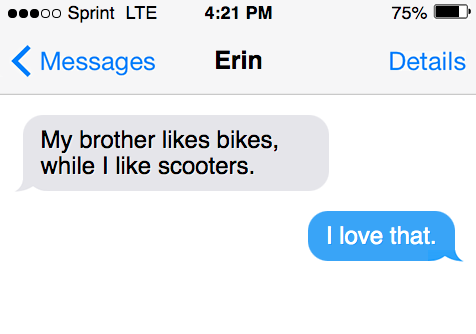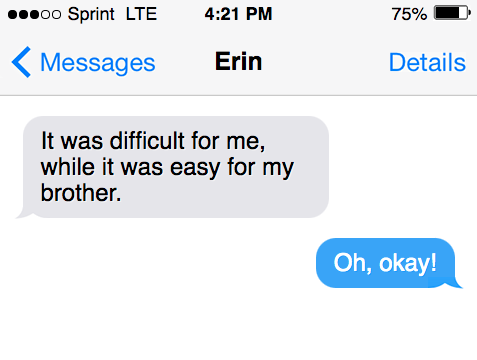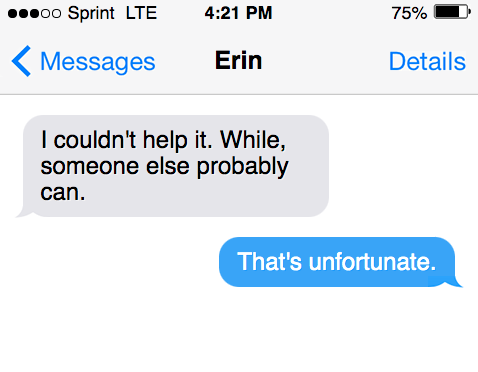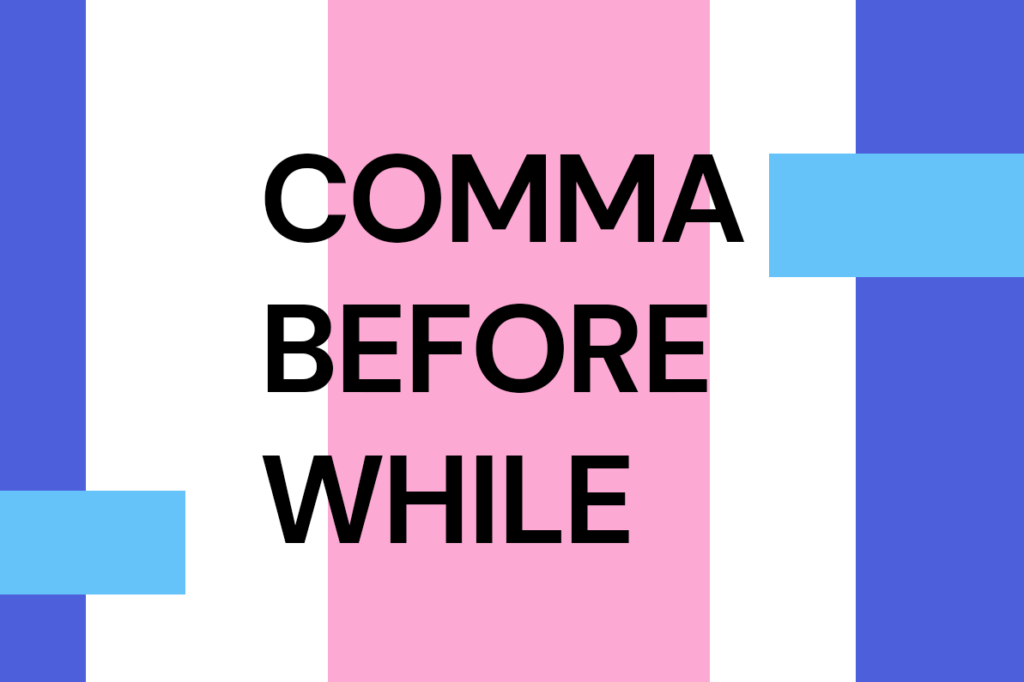Is there a comma before while? When does the word “while” have a comma before it? And what does it mean when there isn’t a comma? Using a comma to separate the word “while” can read as two different meaning in American English.
The meaning of “while” and the comma relationship
“While” can have two meanings. The first meaning is something that is time-related. The second meaning is something that is occurring at the same time as something else in the temporal sense.
This could be a contrast. Or saying, “whereas” or “although.”
A comma before “while” can separate one meaning from the other. A subordinate clause after the main clause provides essential context for the contrast taking place with the comma.

What does no comma before “while” mean?
When referring to time, it’s best to use a comma before the word “while.” It is used in a temporal sense. A temporal sense is a semantic role of the noun phrase that designates the time of the state or action denoted by the verb.
Examples of use:
“The car was ready while I was at the auto mechanic.”
“I was sitting in the coffee shop while my coffee was getting made.”
Incorrect examples:
“The care was ready, while I was at the auto mechanic.”
“I was sitting the coffee shop, while my coffee was getting made.”
Reasons for the examples being incorrect
In the first set of examples, we can see that the word “while” is getting used in the sentence to describe time. It is not considered a subordinate clause. Resulting in the sentence not needing a comma before “while.”

What does a comma before “while” mean?
A comma before “while” indicates a difference of two things. For example, two actions that are related, although different. It describes difference. For example, the wrong way of using the comma would be, “My sister really loves to ride her bike while I ride my scooter.”
The correct grammar would be as follows: “My sister really loves to ride her bike, while I ride my scooter.”
A subordinate clause after the main clause provides essential context for the contrast taking place with the comma.
Examples of use:
Correct example: “I have a red bike, while my brother has a blue bike.”
Correct example: “I love to listen to music, while my sister loves to paint.”
Using “while” at the start of a sentence
To begin a sentence with the word “while,” a writer should not place a comma in front of it or after it unless you mean to say, “whereas” or “although.”

Examples of “while” getting used as a first word incorrectly:
Incorrect example: “The gentlemen had a discussion that led to a debate. The first gentlemen felt one way about the horses. And the second gentlemen decided to provide his insights. While, the third person decided to wait patiently until the discussion was over.”
Examples of “while” getting used as a first word correctly:
Correct example: “The gentlemen had a discussion that led to a debate. The first gentlemen felt one way about the horses. And the second gentlemen decided to provide his insights. While the third person decided to wait patiently until the discussion was over.”
A comma separating the contrasting contrast statements:
Correct example: “My brother plays baseball on the high school varsity team, while I play soccer.”
Correct example: “My younger sister is part of the cheerleading team at our school, while I play on the football team.”
This is referred to as starting a sentence with a dependent clause (reference). For example, the younger sister and brothers preferences over the writers preferences. “While” at the beginning of a sentence usually takes place when the first clause (reference) is getting denoted.
Summary
- Don’t use a comma before the word “while” unless you’re intended to communicate, “during the same time.”
- Use a comma before the word while when you mean “whereas” or “although.”
- If comparing two things, use a comma before while in the middle of a sentence. For example, “Jason really likes football, while I like soccer.”
- “While” has two meanings when used as a conjunction.
- Put a comma at the beginning of a sentence when you intend to say “whereas” or “although.”
“While” is most commonly used to describe a contrast. For example, the comparison of two things that are related. The other meaning of while is to describe something else happening in the temporal sense (or at the same time).
Commas can be tricky to use, especially when using the word “while” in a sentence. “While” is most commonly used as a conjunction in order to connect two clauses.
Sources
- What does temporal mean? – Dictionary – AudioEnglish.org
- Subordinate clause Definition & Meaning – Merriam-Webster
- Independent and Dependent Clauses // Purdue Writing Lab
- What Is A Conjunction? Types & Examples – Thesaurus.com
- What is a Main Clause in English Grammar? – ThoughtCo
- Grammar Clauses in English Made Easy
- Types of Clauses – Cliffs Notes
- Whereas Definition & Meaning – Merriam-Webster
Inside this article
Fact checked:
Content is rigorously reviewed by a team of qualified and experienced fact checkers. Fact checkers review articles for factual accuracy, relevance, and timeliness. Learn more.
Core lessons
Glossary
- Abstract Noun
- Accusative Case
- Anecdote
- Antonym
- Active Sentence
- Adverb
- Adjective
- Allegory
- Alliteration
- Adjective Clause
- Adjective Phrase
- Ampersand
- Anastrophe
- Adverbial Clause
- Appositive Phrase
- Clause
- Compound Adjective
- Complex Sentence
- Compound Words
- Compound Predicate
- Common Noun
- Comparative Adjective
- Comparative and Superlative
- Compound Noun
- Compound Subject
- Compound Sentence
- Copular Verb
- Collective Noun
- Colloquialism
- Conciseness
- Consonance
- Conditional
- Concrete Noun
- Conjunction
- Conjugation
- Conditional Sentence
- Comma Splice
- Correlative Conjunction
- Coordinating Conjunction
- Coordinate Adjective
- Cumulative Adjective
- Dative Case
- Determiner
- Declarative Sentence
- Declarative Statement
- Direct Object Pronoun
- Direct Object
- Diction
- Diphthong
- Dangling Modifier
- Demonstrative Pronoun
- Demonstrative Adjective
- Direct Characterization
- Definite Article
- Doublespeak
- False Dilemma Fallacy
- Future Perfect Progressive
- Future Simple
- Future Perfect Continuous
- Future Perfect
- First Conditional
- Irregular Adjective
- Irregular Verb
- Imperative Sentence
- Indefinite Article
- Intransitive Verb
- Introductory Phrase
- Indefinite Pronoun
- Indirect Characterization
- Interrogative Sentence
- Intensive Pronoun
- Inanimate Object
- Indefinite Tense
- Infinitive Phrase
- Interjection
- Intensifier
- Infinitive
- Indicative Mood
- Participle
- Parallelism
- Prepositional Phrase
- Past Simple Tense
- Past Continuous Tense
- Past Perfect Tense
- Past Progressive Tense
- Present Simple Tense
- Present Perfect Tense
- Personal Pronoun
- Personification
- Persuasive Writing
- Parallel Structure
- Phrasal Verb
- Predicate Adjective
- Predicate Nominative
- Phonetic Language
- Plural Noun
- Punctuation
- Punctuation Marks
- Preposition
- Preposition of Place
- Parts of Speech
- Possessive Adjective
- Possessive Determiner
- Possessive Case
- Possessive Noun
- Proper Adjective
- Proper Noun
- Present Participle
- Prefix
- Predicate



